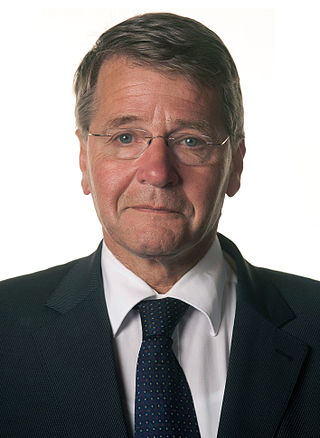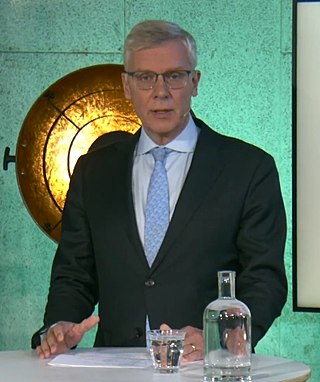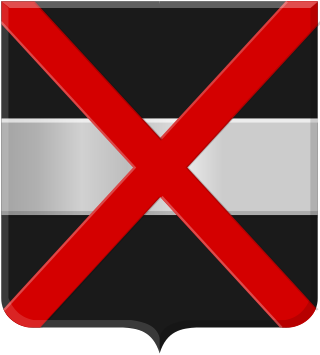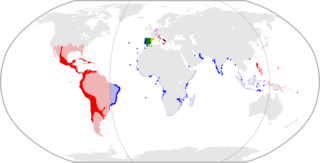
Jan Pieter Hendrik "Piet Hein" Donner is a retired Dutch politician of the Christian Democratic Appeal (CDA) party and jurist. He was granted the honorary title of Minister of State on 21 December 2018.

The Supreme Court of the Netherlands, officially the High Council of the Netherlands, is the final court of appeal in civil, criminal and tax cases in the Netherlands, including Curaçao, Sint Maarten and Aruba. The Court was established on 1 October 1838 and is located in The Hague.
The Dutch Code of Civil Procedure comprises four books covering topics relating to court civil procedure.

Herman Diederik Tjeenk Willink is a retired Dutch politician of the Labour Party (PvdA) and jurist. He was granted the honorary title of Minister of State on 21 December 2012.
Jonkheer Lodewijk Cornelis Josephus Andreas van Meeuwen was a Dutch lawyer and president of the court.
Jonkheer Pieter Leon van Meeuwen was a Dutch jurist and president of the Court in The Hague.

The government of Curaçao, a "constituent country" of the Kingdom of the Netherlands, takes place in a framework of a parliamentary representative democratic country, whereby the prime minister is the head of government, and of a multi-party system. Executive power is exercised by the government. Legislative power is vested in both the government and parliament. The judiciary is independent of the executive and the legislature. Curaçao has full autonomy on most matters, with the exceptions summed up in the Charter for the Kingdom of the Netherlands under the title "Kingdom affairs". The Constitution of Curaçao was ratified in September 2010, and entered into force on 10 October 2010 upon the dissolution of the Netherlands Antilles.

Marnix Leonard Alexander van Rij is a Dutch politician. As of 10 January 2022, Van Rij is State of Secretary for Finance in the fourth Rutte cabinet

Foort van Oosten is a Dutch politician and lawyer. As a member of the People's Party for Freedom and Democracy, he was a member of the House of Representatives between 20 September 2012 and 20 February 2019. On 20 February 2019 he was appointed as mayor of Nissewaard.

The Hoge Raad van Holland, Zeeland en West-Friesland was the supreme court of the provinces of Holland and Zeeland in the Dutch Republic in the period 1582–1795. This court is considered a direct predecessor of the current Hoge Raad der Nederlanden. It played an important role in the formation of Roman-Dutch law, which still influences law in Southern Africa, through its jurisprudence.

The Hof van Holland, Zeeland en West-Friesland was the High Court of the provinces of Holland, West Friesland and Zeeland, instituted as a separate entity of the government of the Counties of Holland and Zeeland in 1428, under the Burgundian and Habsburg Netherlands, and continued with little change under the Dutch Republic, Batavian Republic, and the Kingdom of Holland, until its dissolution in 1811 by the First French Empire. It should not be confused with the Hoge Raad van Holland en Zeeland which was the supreme court, founded in 1582 by the States-General of the Netherlands and intended for the entire Dutch Republic. The Hof was in practice the main Appellate court in Holland and Zeeland, and in number of cases-handled the most important in the entire Dutch Republic and its Precedents played an important role in the development of Roman-Dutch law, which is still influential in Southern Africa.

The flag of Scheveningen is in azure with three right swimming herrings of silver, each herring with a three-leaved yellow crown, floating above the head. The origin of the coat of arms is a matter of debate because Scheveningen is not, and never has been, an autonomous municipality. Since the village was founded in 1284, Scheveningen has always been a part of the municipality of The Hague.

Pieter Roose, lord of Froidmont, Han and Jemeppe, was president of the Privy Council from 1632 to 1653, and a key actor in the government of the Habsburg Netherlands for over twenty years.

The Judiciary of the Netherlands is the system of courts which interprets and applies the law in the Netherlands.
Jean-Antoine Locquet, Lord of Impel, was a Brabantine lawyer who served as president of the Great Council of Mechelen and in 1681 became first viscount of Hombeke (Hombecque).

The Lordship of Baarsdorp is a (former) Dutch Lordship situated in the province of Zeeland, in the Netherlands.

The Supreme Council of Flanders and Burgundy was a governing institution in the Spanish Empire responsible for advising the king of Spain on the exercise of his prerogatives in the Spanish Netherlands, a territory which comprised most of the modern states of Belgium and Luxembourg, as well as parts of northern France, the southern Netherlands, and western Germany, particularly regarding ecclesiastical nominations, the appointment of high officials, royal pardons, and awards of honours such as knighthoods and noble titles.

Adriaan Teding van Berkhout was an eminent Dutch jurist, justice in the Hof van Holland, and politician of the Dutch Republic. He was a friend of Johan van Oldenbarnevelt, who tried to warn the latter of his impending arrest before the Trial of Oldenbarnevelt, Grotius and Hogerbeets.
Pieter Eijssen was a Dutch lawyer and, among other things, Vice President of the Supreme Court of the Netherlands.
Gerrit van der Linde was a Dutch jurist. He was a justice of the Supreme Court of the Netherlands from 1981 to 1997.






















